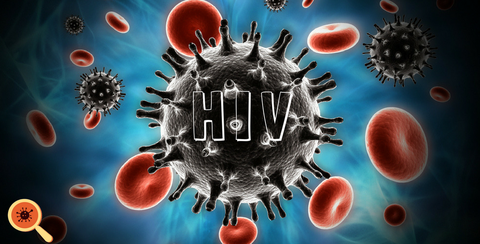
Understanding HIV and Why Prevention Matters
HIV (Human Immunodeficiency Virus) is a virus that attacks the body’s immune system. If left untreated, HIV can lead to AIDS (Acquired Immunodeficiency Syndrome). According to the World Health Organization (WHO), over 39 million people were living with HIV globally in 2023. While medical advancements have made HIV more manageable, there is still no cure—making prevention critically important.
HIV spreads primarily through:
-
Unprotected sexual contact
-
Sharing needles or syringes
-
Mother-to-child transmission during pregnancy, childbirth, or breastfeeding
-
Blood transfusions with unscreened blood (rare in countries with strict protocols)
Understanding the transmission methods empowers individuals to take proactive steps to avoid exposure.
Proven HIV Prevention Strategies
1. Practice Safer Sex
Consistent and correct use of condoms during vaginal, anal, or oral sex remains one of the most effective ways to prevent HIV. Condoms act as a barrier that stops bodily fluids from being exchanged during sex—fluids that may carry HIV.
Tip: Use water- or silicone-based lubricants to prevent condom breakage, especially during anal sex.
2. Know Your HIV Status
Regular HIV testing is a crucial part of prevention. Many people living with HIV are unaware of their status, which increases the risk of transmission. Early detection enables individuals to begin treatment and reduce the viral load to undetectable levels—making HIV untransmittable (U=U).
Get tested:
-
Before starting a new sexual relationship
-
At least once a year if sexually active
-
More frequently if engaging in high-risk behavior
3. Use PrEP if You’re at High Risk
Pre-Exposure Prophylaxis (PrEP) is a once-daily pill that reduces the risk of acquiring HIV by up to 99% when taken consistently. It’s especially recommended for:
-
People in a relationship with someone who is HIV-positive
-
Individuals who don’t consistently use condoms
-
People who inject drugs
Talk to a healthcare provider to see if PrEP is right for you. Learn more from CDC PrEP Guidelines.
4. Seek PEP After Potential Exposure
If you believe you’ve been exposed to HIV, Post-Exposure Prophylaxis (PEP) may prevent infection. PEP is a 28-day course of antiretroviral drugs and must be started within 72 hours after exposure. It is used in emergency situations, such as:
-
Condom breakage during sex with someone who is HIV-positive
-
Needle-stick injuries
-
Sexual assault
Visit a hospital or urgent care clinic immediately for evaluation.
5. Avoid Sharing Needles and Syringes
Using contaminated needles is one of the fastest ways HIV spreads. Never share needles, syringes, or drug-preparation equipment. Many communities offer needle exchange programs and access to safe injection kits.
Tip: If you or someone you know injects drugs, seek help from harm reduction services to stay safe and get support.
6. Prevent Mother-to-Child Transmission
With proper medical care, the risk of a mother passing HIV to her baby can be less than 1%. Pregnant women should be tested for HIV early in pregnancy. If HIV-positive, taking antiretroviral therapy (ART) throughout pregnancy and delivery can protect the child.
Lifestyle Tips to Stay HIV-Free
-
Limit your number of sexual partners
-
Avoid alcohol and drugs that impair decision-making
-
Communicate openly with partners about HIV and STI testing
-
Encourage your community to get tested and informed
Real-life example:
Emma, a 28-year-old woman in the U.S., started PrEP after learning her partner was HIV-positive. Through regular checkups and communication, they’ve maintained a healthy relationship while staying protected.
Final Thoughts: Prevention is Power
While medical treatment for HIV has come a long way, prevention remains the most effective strategy. Whether through safer sex practices, PrEP, regular testing, or avoiding risky behaviors, you have the tools to protect yourself and others.
Stay informed. Stay proactive. Stay protected.
